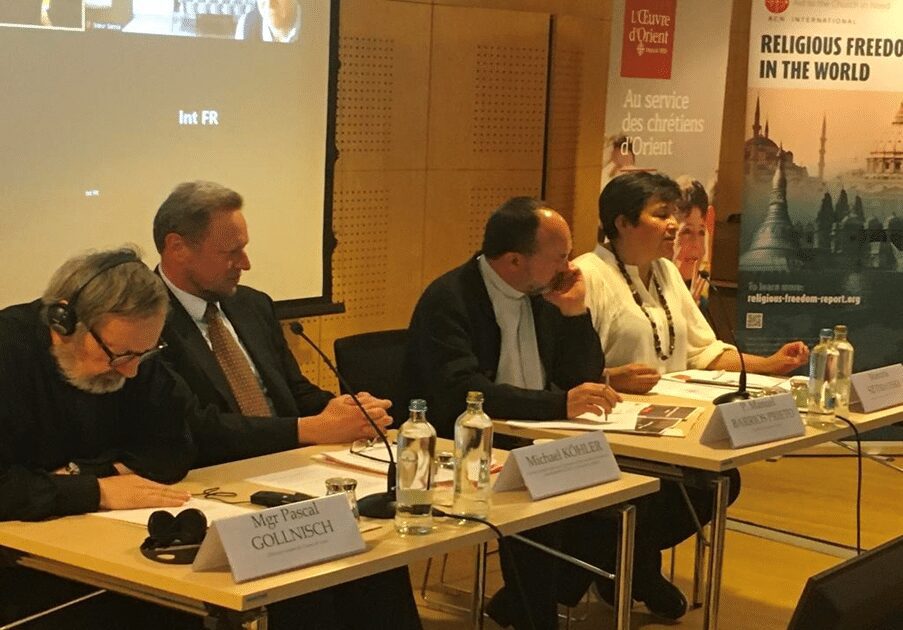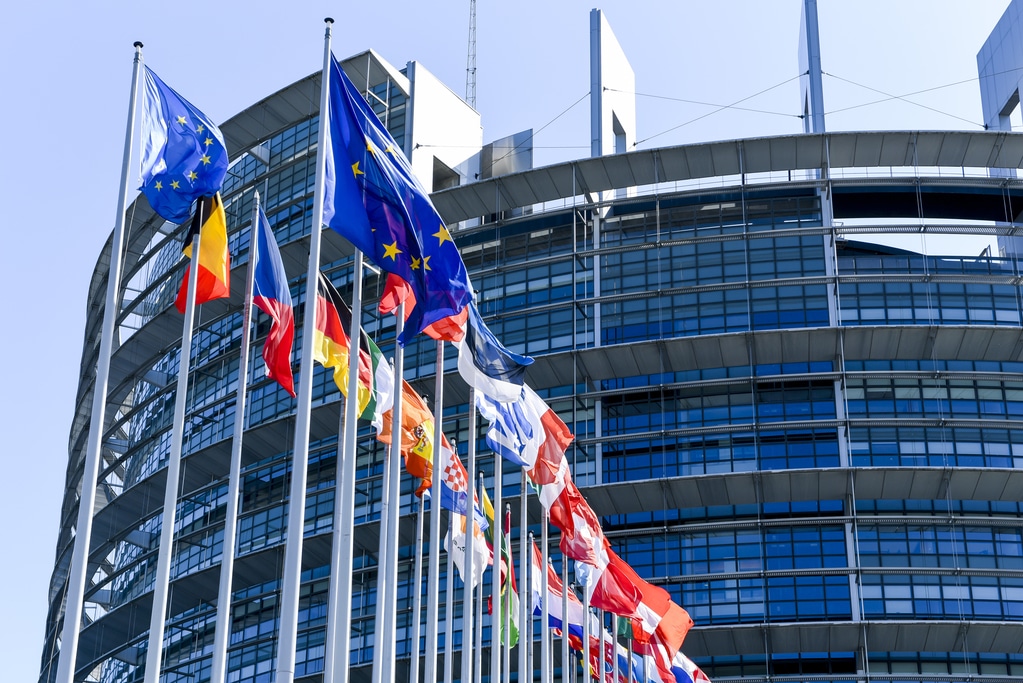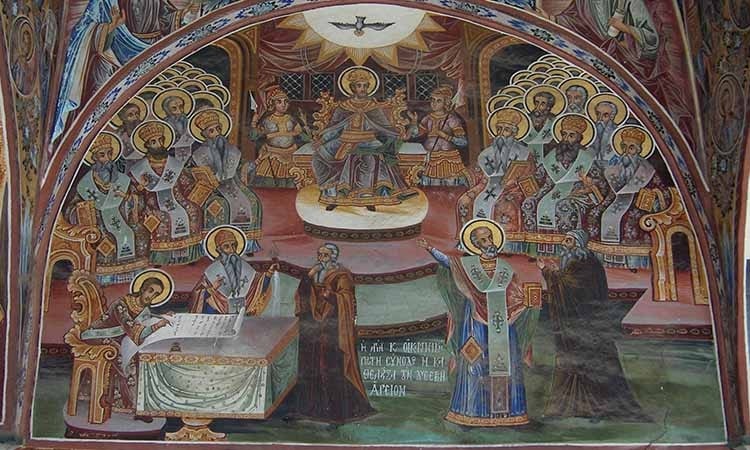Christians in Syria are doomed to disappear within two decades if the international community does not develop specific policies to protect them.
This was the call for urgent assistance from Christian Syrian activists who had come to Brussels to testify at the conference organized by the COMECE, L’Oeuvre d’Orient and Aid to the Church in Need on the eve of the 7th Brussels EU Conference “Supporting the future of Syria and the region.”
The event titled “Syria – Humanitarian and Development Challenges of Faith-Based Actors: a Christian Perspective” also gave the floor online to representatives of Christian humanitarian and social projects in Syria.
An accumulation of threats
In this 13th year of war, Christians are among the 97% of the global population who live below the poverty line but in addition the demographic erosion of their community looks irreversible. A few alarming data.
In Aleppo, 2/3 of Christian families have ‘disappeared’ from the radars: there are only 11,500 left now against 37,000 in 2010.
Each Christian family is only composed of 2.5 persons due to the decreasing birth rate which can be explained by the massive migration of young couples and the lack of a future to be built in Syria for a possible next generation.
Moreover, according to some statistics, about 40% of the remaining families are headed by women but they have fewer job opportunities than men.
The average age of the members of the Christian community is 47 years. As it is steadily rising, this trend will lead to an increasingly ageing community doomed to become less and less dynamic and to die slowly without descendants.
In addition, the devastating earthquake in February and the unabated egregious violations of human rights have further aggravated their situation.
For the moment, there is no light at the end of their tunnel although young Christians are ready to take up the challenge, but funding is needed to build a future, some Syrian Christians said at the conference.
No regime change no reconstruction, the EU says
On 15 June, the EU High Representative/ Vice-President Josep Borrell said at the 7th Conference:
“The European policy on Syria has not changed. We will not re-establish full diplomatic relations with the Assad regime, or start working on reconstruction, until a genuine and comprehensive political transition is firmly under way – which is not the case.
Josep Borrell
As long as there is no progress – and for the time being there is no progress – we will maintain the sanctions regime. Sanctions that target the regime and its supporters, and not the Syrian people.”
In the Catholic Church, some think that a lot of attention is disproportionately devoted to the sanctions targeting the 3% elite while not enough is efficiently being done to guarantee the present and the future of the poor population (97%).
The United States and the European Union have stopped to be credible political players in Syria since September 2013 when former U.S. President Obama finally failed to resort to military intervention, despite his verbal threats, after Assad used chemical weapons against his own population. This unpunished crossing of the American red line had then resulted in the unavoidable withdrawal of President Hollande from any military joint operation. The vacuum was quickly replaced by Russia and now Assad’s Syria has just been reintegrated in the Arab League.
Some in the Catholic Church firmly contend the position that reconstruction is a priority to keep Syrians of all faiths and ethnicities on their historical lands and should not be indefinitely subjected to an illusory political change in Damas. They consider that reconstruction can be carried out without legitimizing Assad’s regime. Such voices need to be listened to and their options to be examined.
Foreign and international humanitarian Christian institutions have their relays in Syria. They can activate their human and logistical capacities to serve the Syrian population in its global diversity. They are reliable partners which meet transparency and justice requirements.
The tiny Christian minority is a chance for Syria because they can have a significant impact on the improvement of the daily life of all Syrians. The EU and other donors should bet on it because Syrians deserve to get a chance to live in dignity.
The 7th Brussels EU Conference
The high-level ministerial segment of the conference gathered representatives of 57 countries on 14-15 June, including EU member states and over 30 international organisations, including the United Nations, in addition to the EU institutions.
The 7th Conference, which claims to be the main pledging event for Syria and the region in 2023, succeeded in mobilising aid to Syrians inside the country and in the neighbouring countries, through international pledges totalling €5.6 billion for 2023 and beyond, including €4.6 billion for 2023 and €1 billion for 2024 and beyond.
The pledges cover the humanitarian needs of Syrians inside Syria, and also support for early recovery and resilience, helping Syrians to rebuild their country and covering the needs of 5.7 million Syrian refugees in the hosting countries, in the neighbourhood: Lebanon, Turkey, Jordan, Egypt and Iraq, as well as the needs of the communities who generously provide them shelter.
From 2011 to date, the European Union and its member states have been the largest donors of humanitarian and resilience assistance to Syria and the region with over €30 billion but they are no longer local political and geo-political players.
Christians in Syria hope that their inclusive educative, social and humanitarian projects will benefit at their fair value from this financial windfall. Only time will tell.














